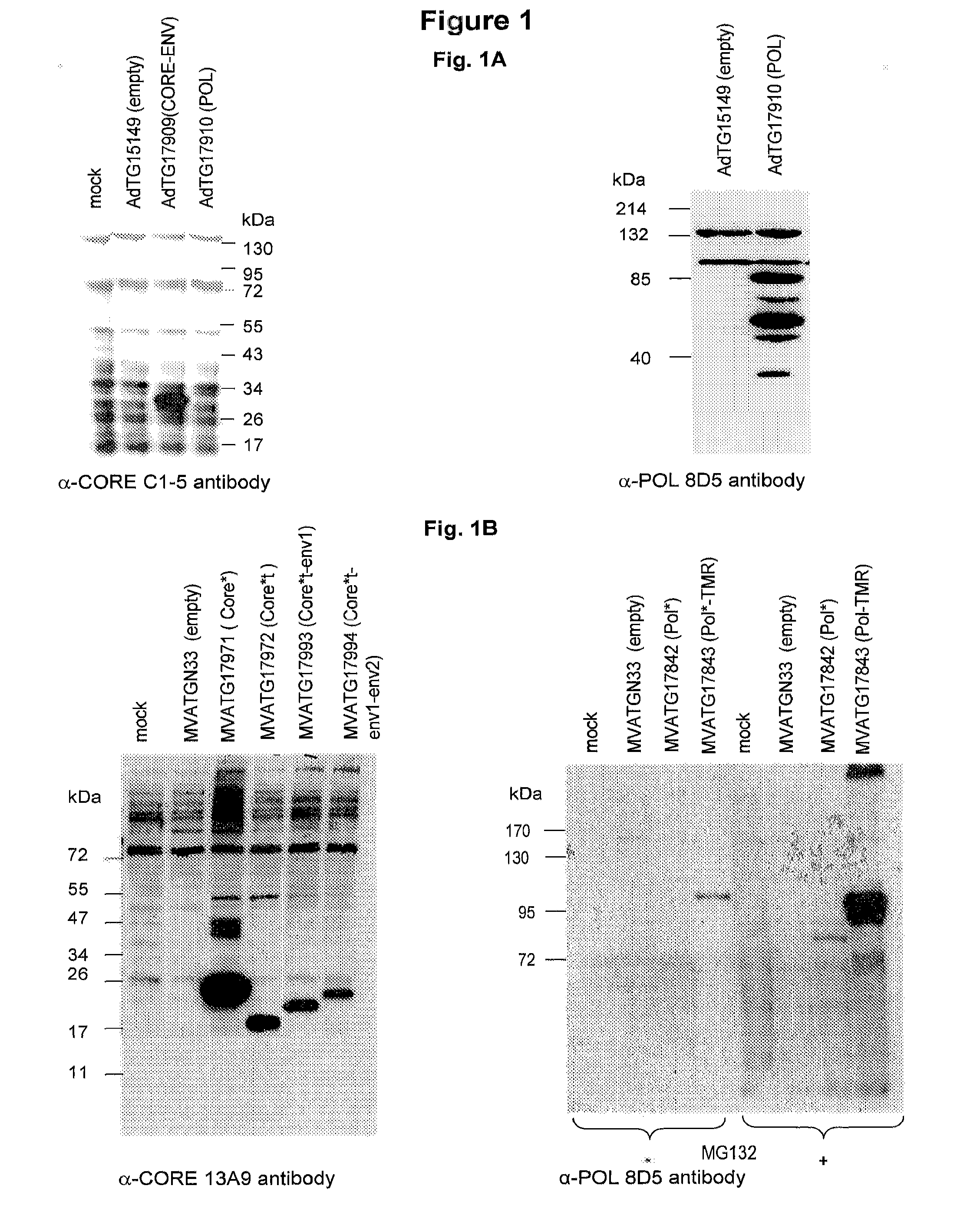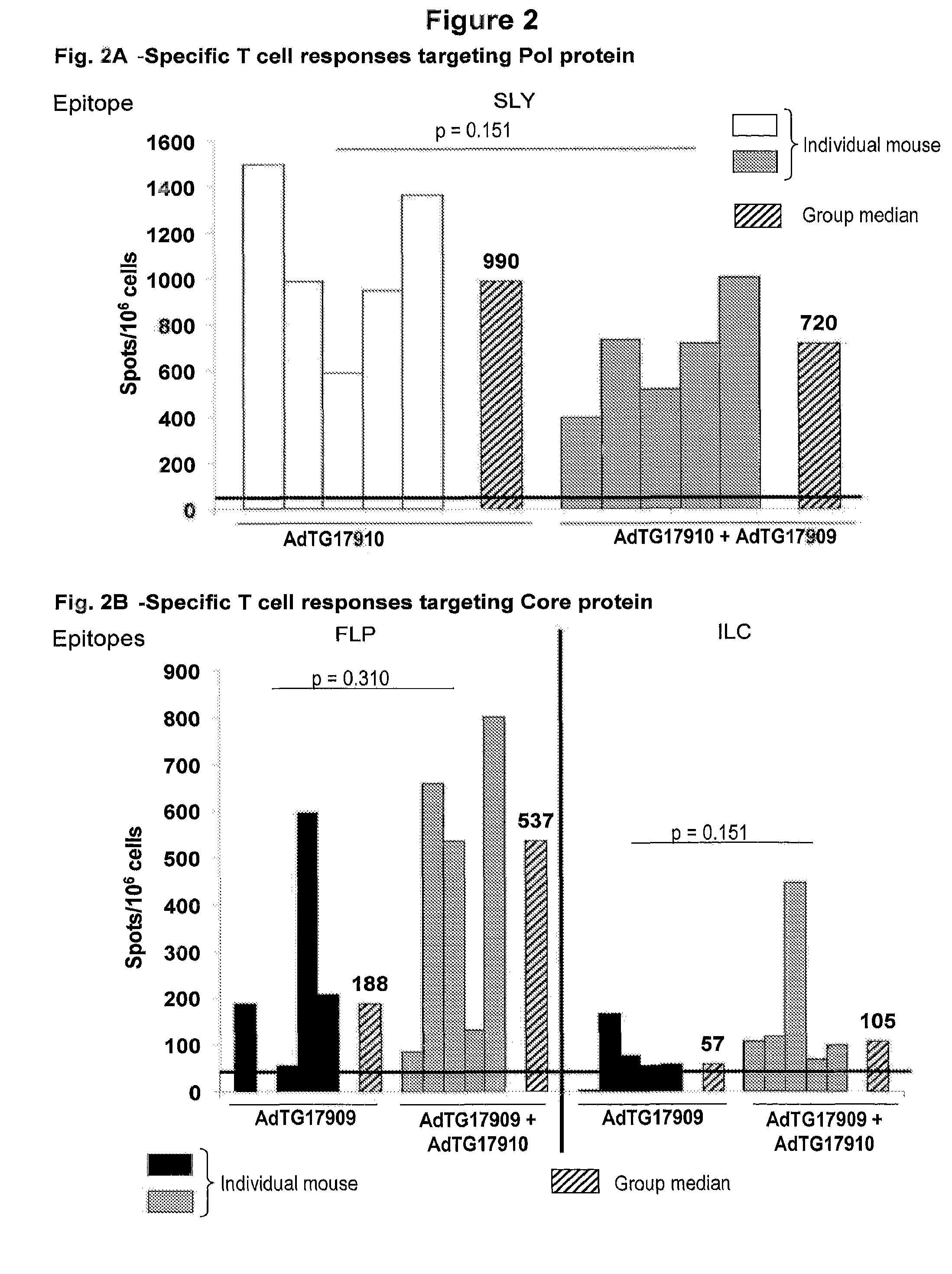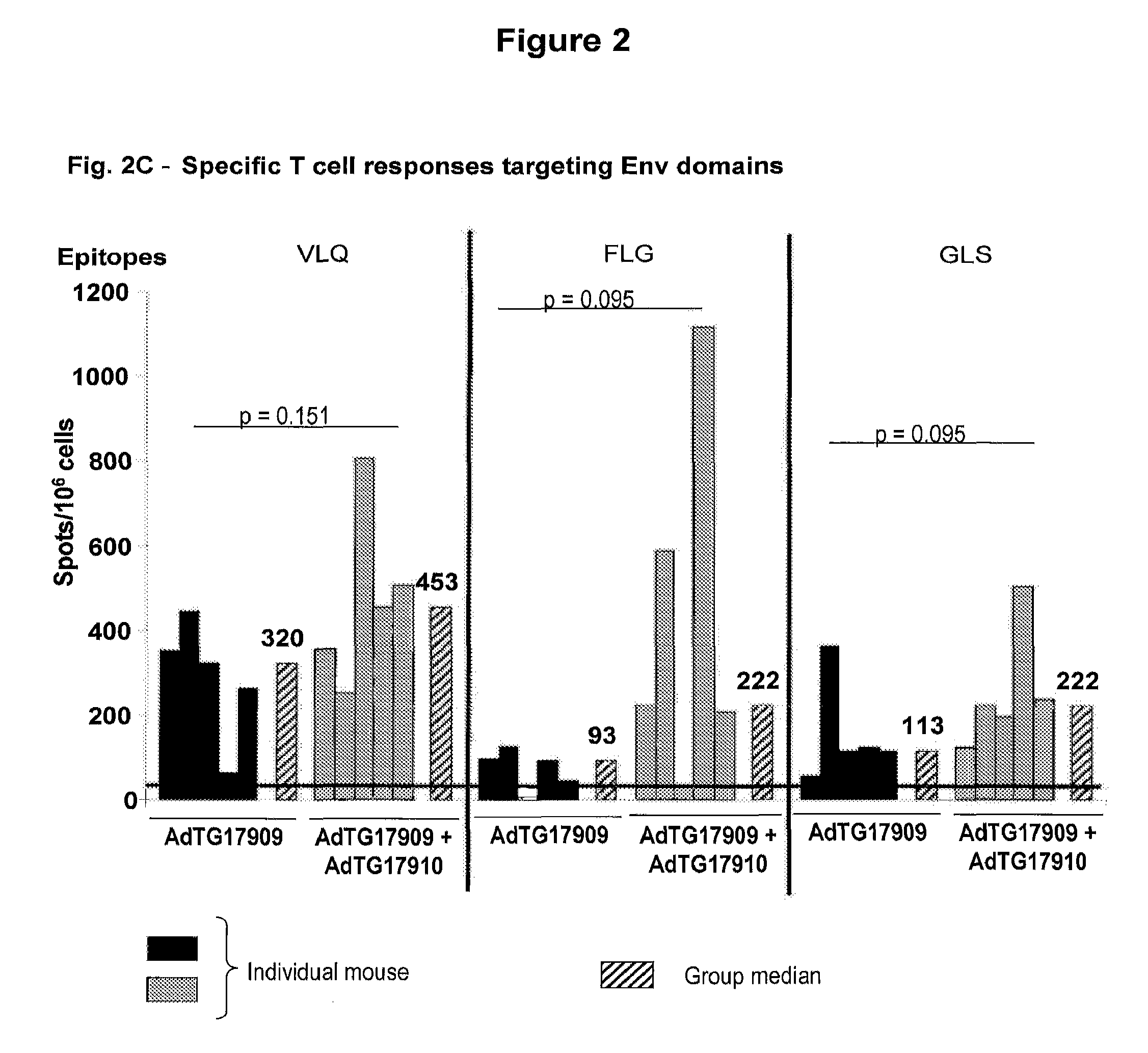Composition for treating hbv infection
- Summary
- Abstract
- Description
- Claims
- Application Information
AI Technical Summary
Benefits of technology
Problems solved by technology
Method used
Image
Examples
Embodiment Construction
1. Material and Methods
[0187]The constructions described below are carried out according to the general genetic engineered and molecular cloning techniques detailed in Maniatis et al (1989, Laboratory Manual, Cold Spring Harbor Laboratory Press, Cold Spring Harbor N.Y.) or according to the manufacturer's recommendations when a commercial kit is used. PCR amplification techniques are known to the person skilled in the art (see for example PCR protocols—A guide to methods and applications, 1990, published by Ihmis, Gelfand, Sninsky and White, Academic Press). The recombinant plasmids carrying the ampicillin resistance gene are replicated in the E. coli C600 (Stratagene) on agar or liquid medium supplemented with 100 μg / ml of antibiotic. The constructions of the recombinant vaccinia viruses are performed according to the conventional technology in the field in the documents above cited and in Mackett et al. (1982, Proc. Natl. Acad. Sci. USA 79, 7415-7419) and Mackett et al. (1984, J. V...
PUM
| Property | Measurement | Unit |
|---|---|---|
| Temperature | aaaaa | aaaaa |
| Fraction | aaaaa | aaaaa |
| Composition | aaaaa | aaaaa |
Abstract
Description
Claims
Application Information
 Login to View More
Login to View More - R&D
- Intellectual Property
- Life Sciences
- Materials
- Tech Scout
- Unparalleled Data Quality
- Higher Quality Content
- 60% Fewer Hallucinations
Browse by: Latest US Patents, China's latest patents, Technical Efficacy Thesaurus, Application Domain, Technology Topic, Popular Technical Reports.
© 2025 PatSnap. All rights reserved.Legal|Privacy policy|Modern Slavery Act Transparency Statement|Sitemap|About US| Contact US: help@patsnap.com



